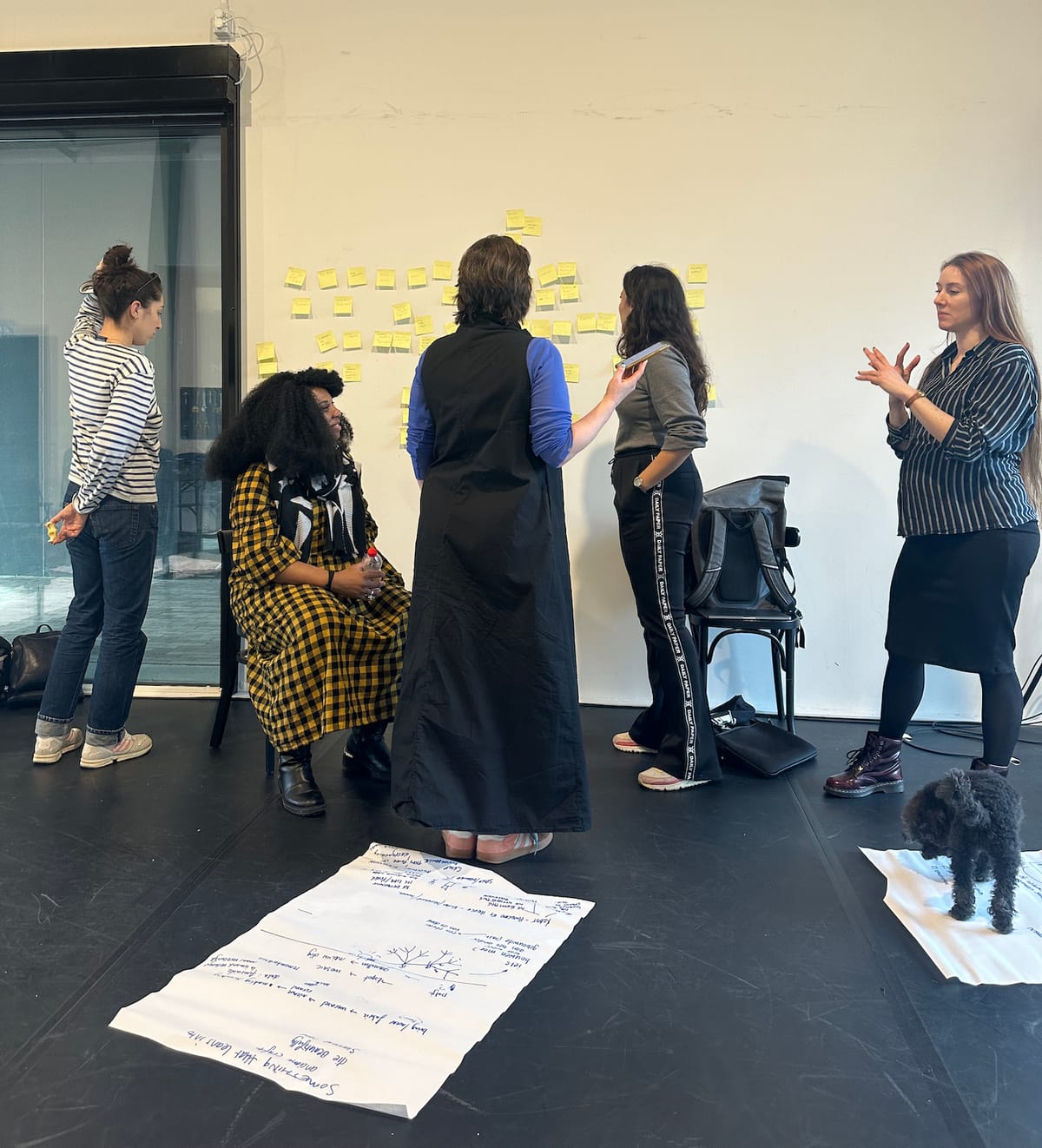This week I spent time in Groningen in the Netherlands with some of the partners from our Venues of the Future (VOTF) r&d project.
This is a project that I started with Annette Mees during Covid "The impact of covid-19 has reinforced that arts and cultural organisations are more than just their physical buildings - they are their work, their artistic community and their audiences. This has highlighted the huge opportunity we have to expand these organisations and institutions into greater digital spaces."
The project is now a funded, multi-partner research and development project. We (Substrakt) are working with Audience Labs (Annette), DEN, Nite, and AEA Consulting.
We ran two days of workshops to explore some of the ideas and themes that are being looked at in the show, FAITH, that our project is running alongside.
We also did a lot of thinking and talking about various possible formats, approaches, and audience needs.
The aim was to start to arrive at some shape and specific approaches for the hybrid programming that VOTF is looking at.
Our group was from an enjoyably diverse range of disciplines, we had a choreographer, a games designer, an actor, a dancer, a creative technologist, an artistic director, and me - whatever I am.
I was struck by how potent this combination of people and perspectives was when it came to generating ideas for potential digital experiences (both remote experiences and technology-enabled in-person experiences).
The power of having proper time and space to do a lot of ideation (we came up with a large number of probably very terrible ideas) before reflecting on and refining the most promising felt like a rare treat, and one that resulted in some really intriguing and exciting outcomes.
I was really impressed by the way that Annette structured the workshops so that folks with a low level of digital confidence/familiarity could provide just as much value as those of us who were more familiar with the specifics of creating this type of experience.
I was also really pleased to see how few of our conversations specified or got stuck on technology, we focused instead on the type of experience or the reason for the particular combination of ideas.
Possible lessons/takeaways if you're looking to try and engage non-digital colleagues in conversations about digital experiences/programmes.
- Create actual time and space away from the day-to-day to have these conversations. There is real value in doing this. We had two whole days, this may not be feasible for you but hold as much time as you can.
- Structure your conversations in a way so that the widest range of people can meaningfully contribue. For example Annette encouraged us to contribute small 'building block' ideas around emotion, perspective, aesthetic, connection - none of which required particular technical or digital expertise.
- Structure what you're doing to invite proper and prolonged engagement from the person/people who are shaping the 'main thing' that your digital work is accompanying or responding to. We were joined by Guy Weizman and Khalid BenGhrib for large chunks of our workshops which was super useful.
- Be specific about the type of conversation you're trying to have. When we were in the 'just have shitloads of ideas' phase there was very clear guidance that the focus was on the volume of ideas, not on any kind of evaluation. Being really clear about the expectations felt important.
- Keep your group fairly small. There were 6 of us consistently present throughout the two days, others dropped in and out, but 6 felt like a nice size, any more and it would perhaps have started to become a bit unwieldy.
- Have a dog present. Beast was a key member of the group.






